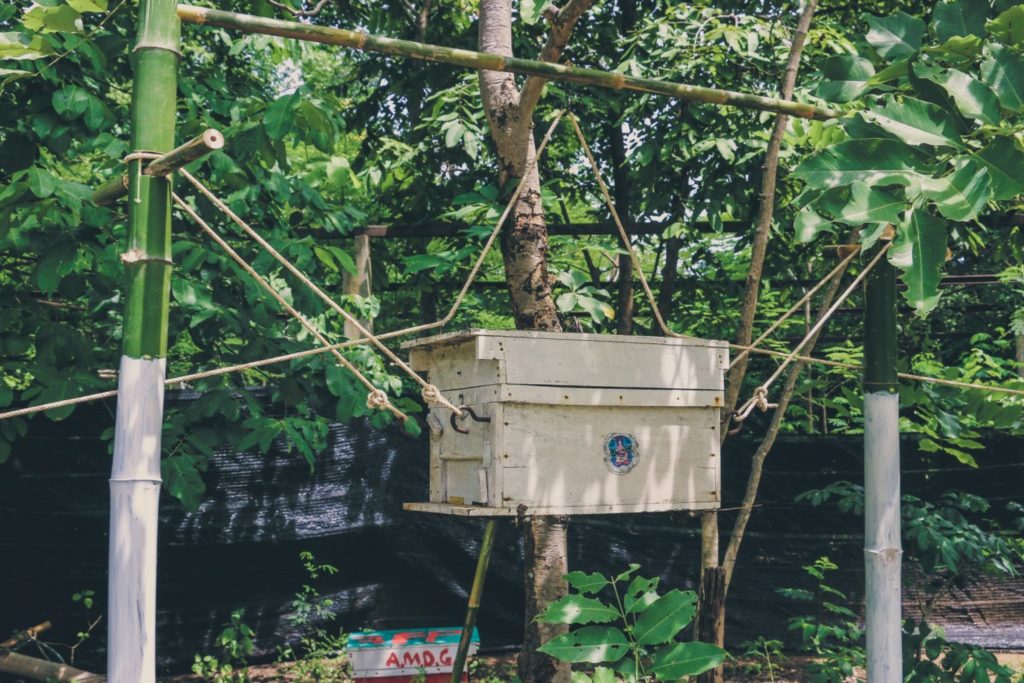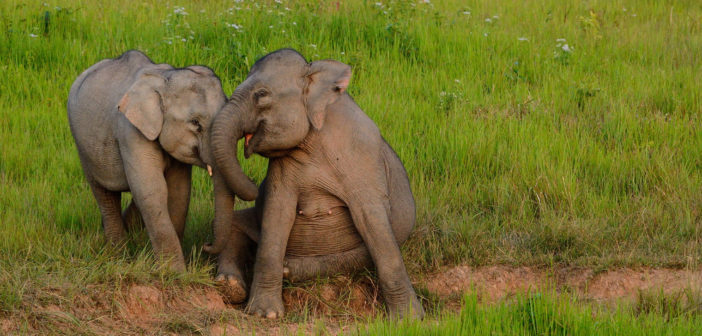Beehive fences can reduce crop damage by Asian elephants and generate supplemental income for farmers in Thailand. As such, they have the potential to prevent violent conflicts between people and the world’s largest land animals and establish new forms of peaceful coexistence, according to a study published August 20, 2020, in Conservation Science and Practice.
The study was conducted in Eastern Thailand, in an area of high human-elephant conflict, consisting of farmland surrounded by elephant habitat.
The researchers first gained insight into the local communities’ attitudes towards elephants where the majority of households experienced negative encounters with elephants at least once a week, including damage to crops and property. Although most farmers had not gained any benefit from living with elephants, two-thirds of the respondents reported being tolerant towards elephants, if only they would stop causing damage. This initial study indicated the need for solutions that combine elephant damage reduction with benefits for local people.
Studies from Kenya have shown that honey bees have the potential to deter elephants as well as provide additional income to farmers from honey. To evaluate this idea for Thailand, the researchers set up a pilot beehive fence of 40 beehives around a subsistence farm. The beehives were outfitted with a low-cost trigger mechanism, which opens the hives to activate dormant bees as soon as elephants try to break the fence at night. Camera-traps on trees near the fence recorded the elephants’ reactions.

Citizen scientists helped to analyze the videos, and the results indicated that over 60% of the elephant groups and over 88% of the individual elephants were deterred by the newly installed beehive fence. The elephants that came close to the beehive fence showed typical signs of increased alertness and uncertainty and often slowly backed away. The farm owner reported a strong reduction in crop damage after the beehive fence was installed, as well as additional benefits, including the supplemental income from honey and rearing honeybee queens.
The researchers suggest that, for maximum impact, beehive fences can be combined with complementary methods such as growing crops that are unattractive to elephants. For instance, the farm owner in this study started growing chilli and lemongrass along the beehive fence as an extra barrier, to attract bees, and as a source of income.
The implementation of beehive fences might be prioritized on smaller farms that are close to significant elephant populations or located along commonly utilized elephant pathways.
This study was a collaboration of Bring The Elephant Home Foundation, the Phuluang Wildlife Research Station, Project Dragonfly of Miami University, the Future for Nature Academy, the Elephants and Bees Project of Save the Elephants and global citizen scientists.
Bring The Elephant Home is hosting an online presentation of this study on September 18.
Featured image: Asian elephants in Thailand. Image credit tontantravel, CC BY-SA 2.0.





